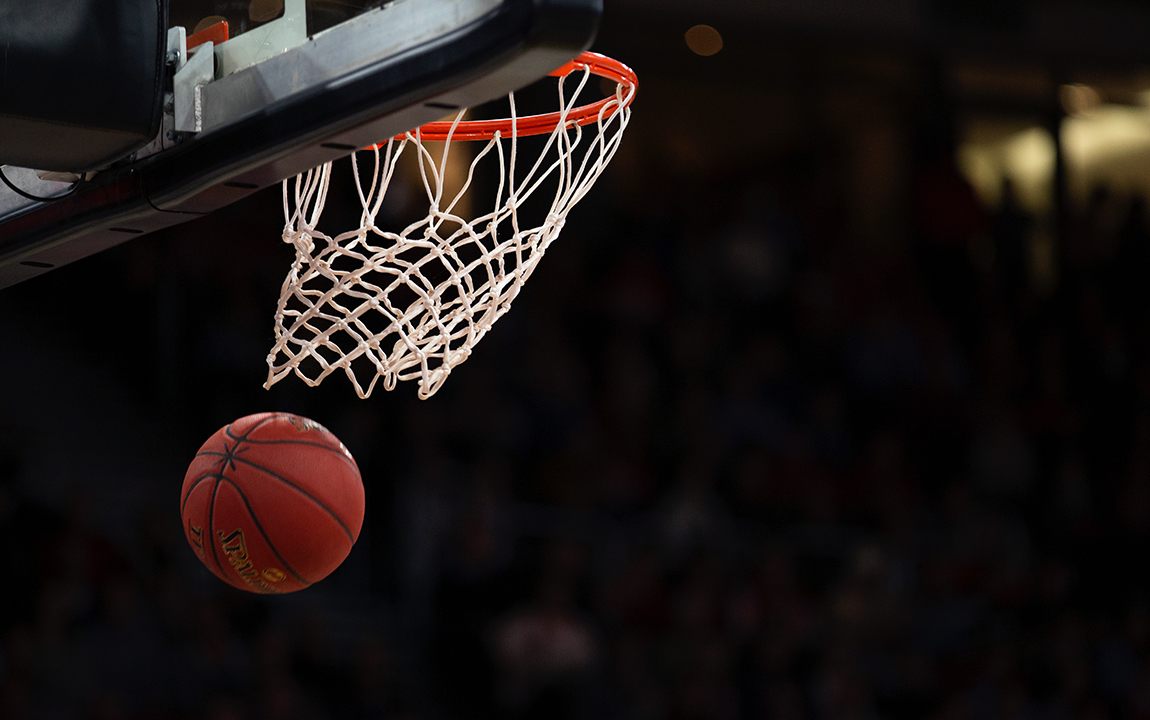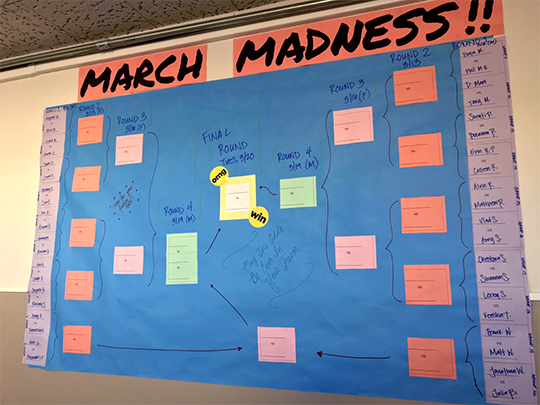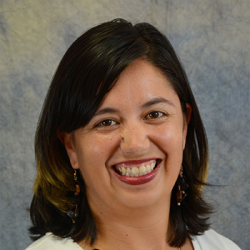
Whether you are hanging your head in shame and lamenting your optimistic choices of your NCAA brackets, or relishing in the glory of seeing your team make it to the championships, March Madness brings out the most competitive side in many of us. It was with this in mind that my PBL-infused school, Impact Academy of Arts and Technology, has held our annual “March Madness: Teacher Observations” bracket.
I am a firm believer that the most useful form of professional development is observing other teachers’ classrooms. No matter the subject area, grade level, or level of expertise of the teacher I am observing, I come away with immediate ideas for my own teaching practice, a deeper understanding of something related to our school culture, knowledge of a student in a new context, or a thought about how I can work differently and more collaboratively with my colleagues. In addition to the individual benefits of observations, having an open-door policy in a school does wonders for collegiality, staff culture, and growth mindset amongst staff as a whole.
Our Observation Competition
So, how does this connect to basketball? At Impact Academy each year we create a bracket system which pits teachers against each other to see how many observations they can complete in a given amount of time, following a few very simple rules.
Rule #1: You must physically be in another teacher’s classroom during your observation.
Rationale: Rather than recording yourself and sending it to someone, or whatever other form of observation someone might imagine, being physically in the room shows another teacher you are there and care enough to learn from their practice. It also makes the collegiality of your staff more transparent to students. If they see us in each other’s rooms, learning from and talking to each other, they know that we collaborate just like we ask them to.

Rule #2: You do not need to do an official observation. In fact, you can sit at their desk and do your own work if you need to.
Rationale: Making the observation unofficial lowers the stakes and reduces any cause for anxiety. We aren’t evaluating each other. We aren’t looking at a rubric. We are simply observing and learning from each other as a community of practitioners. Similarly, allowing teachers to “do work” during their observation takes some of the excuses away from new, overwhelmed, overworked teachers that think they don’t have the time to use their prep period for observations. In reality, teachers usually get so caught up in the joy of watching their colleagues in action that their work goes by the wayside anyway!
Rule #3: If you take photos or videos of classrooms in action, you can earn bonus points!
Rationale: The more we can make our work visible across our community, the better. These photos and videos can create a rich library of classroom set-ups, student work, instructional strategies, and classroom culture for everyone to learn from.
The Impact of De-Privatizing Practice
The impact we have seen from this simple competition is immeasurable. Some things that have occurred are that teachers form new relationships with one another, learn and try new instructional strategies, and discover areas for potential collaboration they didn’t know existed before. This can be particularly important in PBL contexts where teachers struggle to find ways to build cross-curricular projects. It has also given teachers who have been hesitant to jump into PBL the chance to see it in action and dispel some fears and anxieties they had about their own abilities to implement PBL in their own classrooms. Teachers often think they cannot use anything they do in their more “traditional” classroom while implementing PBL, and a simple observation can show them that this isn’t true.
As winter comes to a close and we face the last few, seemingly endless months of the school year, consider creating an observation challenge in your own school community. Nothing like a little competition to bring a team together! Bonus tip: We’ve found teachers get particularly invested in the challenge if they know that the winner’s prize is no lunch supervision for the rest of the school year!
Want to learn more about PBL? Check out our books.
Register now for PBL World 2024.

